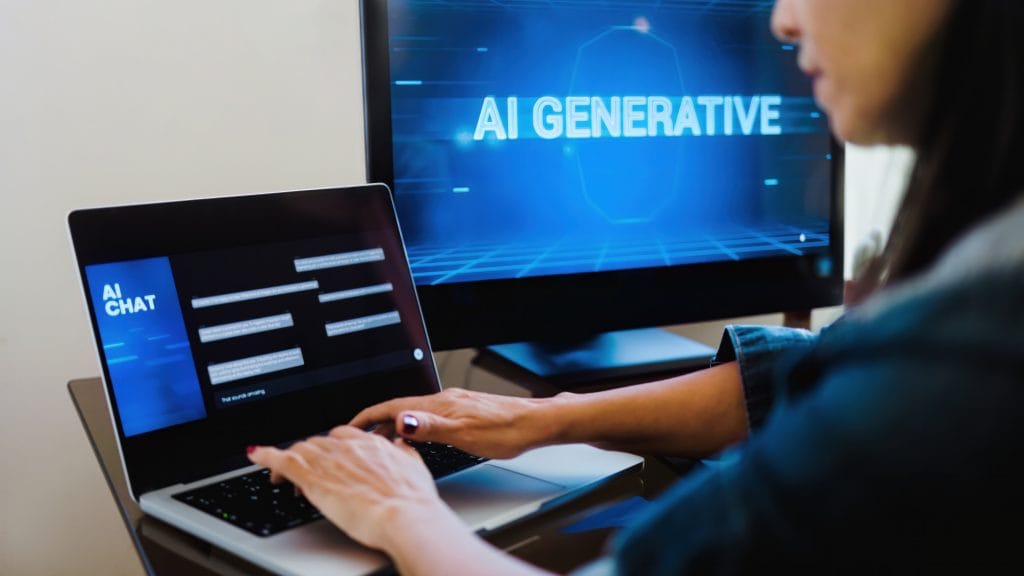As artificial intelligence (AI) continues to revolutionize various aspects of our lives, the education sector is no exception. A recent survey conducted by Forbes Advisor, which polled 500 practicing educators from across the United States, sheds light on the growing impact of AI in classrooms and the perspectives of those at the forefront of this technological transformation.

The Rise of AI in Education
The survey results reveal that over half of the teachers surveyed have already encountered AI tools in their daily routines, indicating a rapid integration of technology into the educational landscape. From AI-powered learning platforms to virtual tutors, these tools are designed to enhance the learning experience and support both students and educators.
“AI has the potential to completely transform the education space” says Dr. Emily Chen, an educational technology expert. “By serving as personalized tutors and offering 24/7 support, AI chatbots can help students overcome learning barriers and achieve their full potential.“
Addressing Concerns and Embracing Change
While the benefits of AI in education are undeniable, the survey also highlights the concerns of educators. Issues such as cheating, loss of human interaction, job security, equity, and safety are at the forefront of teachers’ minds as they navigate this new frontier.
However, as Dr. Chen points out, “Banning technological tools is not the answer. Instead, we must focus on educating students, parents, and educators on the proper use of AI and the consequences of misuse.“
Preparing Students for the Future
As AI becomes more prevalent in our daily lives, it is crucial that students learn to harness its power responsibly. By incorporating AI into the curriculum, educators can equip students with the skills they need to thrive in a rapidly evolving digital landscape.
“Nearly all respondents in our survey believe schools should teach students how to use AI ethically” says Forbes Advisor’s education editor, Sarah Johnson. “This is a clear indication that educators recognize the importance of preparing students for a future where AI will play a significant role.“
The Role of Effort and Perseverance
While AI can serve as a powerful tool in the learning process, it is essential to emphasize the importance of effort and perseverance. As Dr. Chen explains, “Students must put in the work to develop their skills and deepen their understanding. AI should not be used as a shortcut, but rather as a means to enhance and support the learning experience.“
To make AI education a reality rather than resorting to bans, it’s essential to integrate comprehensive AI literacy programs into the curriculum. These programs should focus on educating students, parents, and educators about the ethical use and potential risks associated with AI. By fostering a deep understanding of AI’s capabilities and limitations, we can empower students to utilize these tools responsibly and effectively. Teachers can guide students in navigating AI applications, highlighting the importance of critical thinking and ethical considerations in their interactions with technology. This approach not only mitigates the risks associated with misuse but also equips students with the skills necessary to thrive in a tech-driven future.
Furthermore, incorporating AI education should emphasize the development of perseverance and effort in students. AI tools should be presented as aids that support the learning process rather than shortcuts to bypass effort. Educators can design assignments that require students to engage deeply with AI tools, encouraging them to analyze, question, and apply the information rather than passively receiving it. By celebrating the process of learning and problem-solving, students can develop resilience and a growth mindset. This balanced approach ensures that while AI enhances the educational experience, it also reinforces the importance of human effort and the intrinsic value of learning, ultimately preparing students for a future where they can leverage AI ethically and effectively.
Conclusion
As the education sector continues to evolve, it is clear that AI will play an increasingly important role in shaping the future of learning. By addressing concerns, educating stakeholders, and emphasizing the importance of effort and perseverance, we can harness the power of AI to create a more equitable, engaging, and effective educational system.
“The future of education is bright” says Johnson. “By embracing the opportunities presented by AI and working together to overcome the challenges, we can ensure that every student has the tools they need to succeed in a rapidly changing world.“
- Survey Highlights: Forbes Advisor survey of 500 US educators shows growing impact of AI in classrooms.
- AI Integration: Over half of teachers surveyed use AI tools daily, including learning platforms and virtual tutors.
- Potential of AI: AI can serve as personalized tutors, offering 24/7 support to help students overcome learning barriers.
- Educator Concerns: Issues like cheating, loss of human interaction, job security, equity, and safety are major concerns.
- Education Over Bans: Experts advocate for educating students, parents, and teachers on the proper use of AI instead of banning it.
- Future Preparation: Incorporating AI into the curriculum can equip students with necessary skills for a tech-driven future.
- Ethical Use: Nearly all surveyed educators believe in teaching students how to use AI ethically.
- Effort and Perseverance: Emphasizing effort and perseverance is crucial; AI should support learning, not replace effort.
- Comprehensive AI Literacy: AI literacy programs should focus on the ethical use and risks, fostering critical thinking and responsible usage.
- Balanced Approach: Assignments using AI should encourage deep engagement, problem-solving, and resilience.
- Optimistic Outlook: Experts believe that with collaboration, AI can help students succeed in a rapidly changing world.

